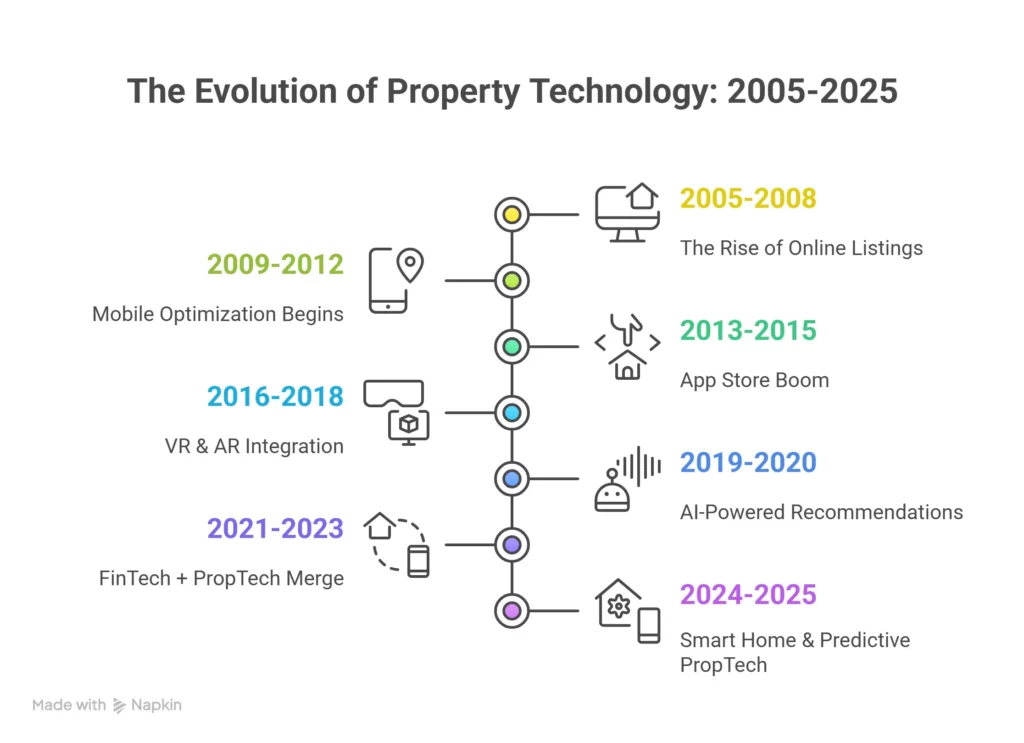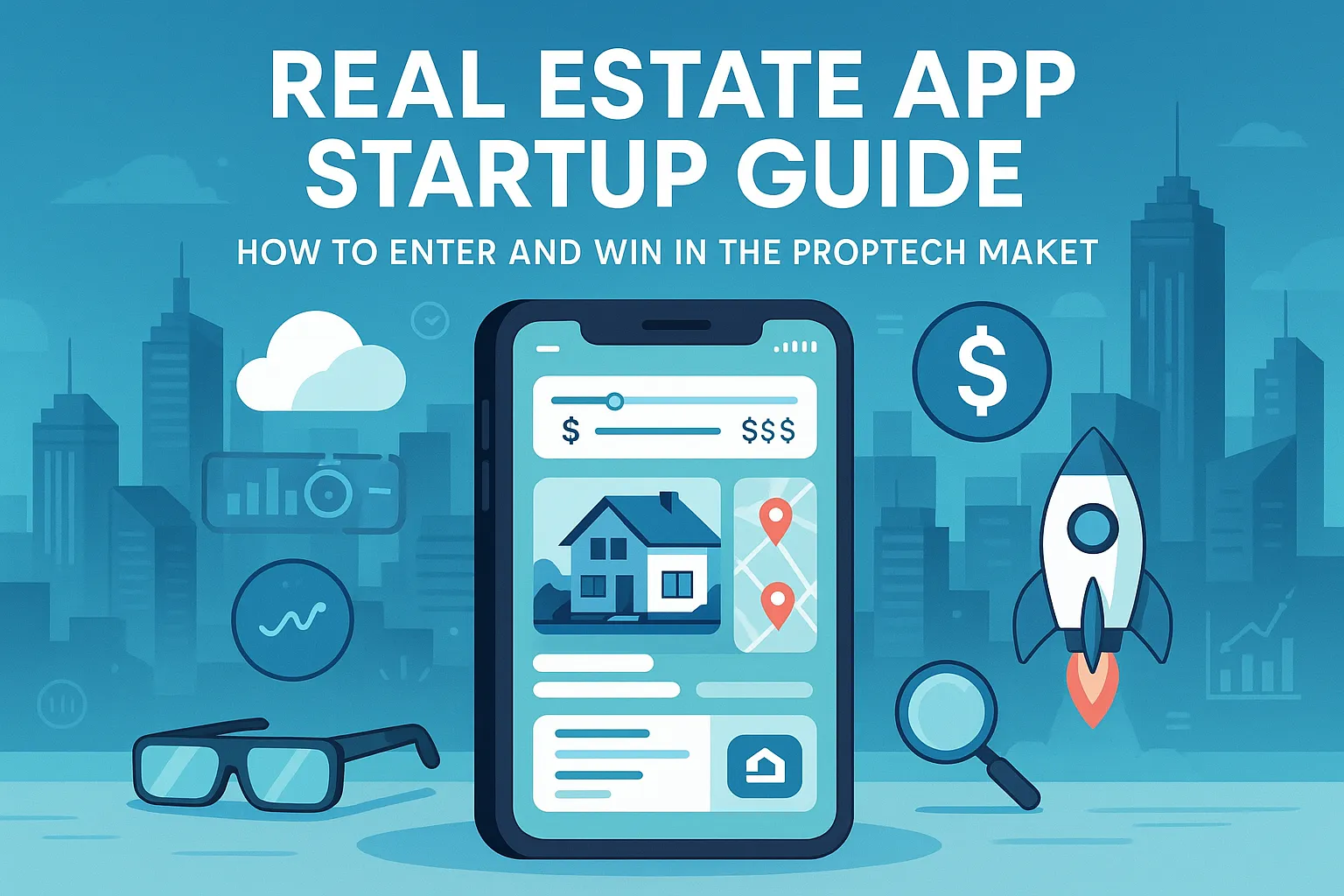Why You’re Even Thinking of Building a Real Estate App
You’re scrolling through listings on Zillow at 2 AM, wondering why the filter UI is so clunky. Or maybe your friend just flipped a house using an app and made a sweet profit. Whatever lit the fire, one thing’s clear: real estate tech is hot. From home searches to rental agreements, everything’s going digital—and there’s a goldmine of opportunity just waiting for disruption.
The thing is, launching a PropTech startup sounds sexy… until you hit the jargon, regulations, and backend chaos. What should your platform even do? Should you go full-on marketplace, or stick to property rentals? Don’t sweat it—we’re breaking it all down, no fluff, no filler.
By the end of this blog, you’ll have a solid grip on how to break into the property tech space—and maybe even build the next Trulia or Redfin. And hey, if you’re looking to build fast and smart, Miracuves has your back.

Why Now Is the Best Time to Enter the PropTech Market
Let’s talk timing. The real estate market has traditionally been slow, offline, and—let’s be honest—kinda boring. But that’s exactly why it’s ripe for digital transformation.
- According to Statista, the global PropTech market is projected to reach $86.5 billion by 2032.
- Consumers want everything on their smartphones—from virtual tours to mortgage calculators.
- Even older demographics (Gen X, Boomers) are warming up to online property platforms.
Choosing Your Real Estate App Type (Before You Write a Single Line of Code)
There’s no one-size-fits-all in PropTech. Your first move? Choose your niche like your startup depends on it—because it does.
1. Property Listing Platforms
Think Zillow or Realtor.com. These platforms connect buyers, sellers, and agents. Key features include:
- Map-based search
- Smart filters
- In-app messaging
- Price estimators
2. Rental Marketplaces
Great for urban hubs where renting is more common than buying. Features may include:
- Lease agreements
- Background checks
- Booking calendars
- Chat support
3. Real Estate Investment Apps
Apps like Fundrise or RealtyMogul democratize real estate investing. Think stocks, but for condos.
- Crowdfunding functionality
- ROI dashboards
- Legal compliance tools
Must-Have Features for Your MVP (Minimum Viable Property App?)
Before you start dreaming of 3D virtual reality penthouse tours, lock down the essentials.
Core Features Checklist:
- User Authentication & Roles (buyer, seller, agent)
- Property Listings with Media Upload
- Geo-Location & Map Integration
- Real-Time Messaging
- Push Notifications
- Favorites & Saved Listings
- Mortgage/Loan Calculator
- Admin Dashboard for Listing Approvals
Monetization Models: Show Me the Money!
No shame in wanting to make bank. Here are the ways your app can generate revenue:
1. Freemium + Premium Listing
Let users post free listings but charge for boosts, featured spots, or urgent tags.
2. Subscription Model
Monthly or yearly plans for agents, property managers, or investors.
3. Transaction Commission
Take a cut when deals close through the platform (great for rental and investment apps).
4. Ad-Based Revenue
Offer ad space to home decor brands, moving companies, or mortgage services.
Tech Stack Essentials: Don’t Get Fancy, Get Functional
Frontend:
- React Native / Flutter (cross-platform FTW)
- Tailwind CSS (because UI shouldn’t hurt)
Backend:
- Node.js + Express
- MongoDB or PostgreSQL
- Firebase for notifications
Integrations:
- Google Maps API
- Twilio for SMS
- Stripe for payments
From Idea to Launch: How Miracuves Makes It Simple
Look, building a full-fledged app from scratch can drain your wallet and your will to live. That’s why Miracuves offers real estate app clone solutions—think of it as a launchpad, not a shortcut.
- 100% customizable clone of leading real estate apps
- Fast deployment & bulletproof scalability
- Monetization-ready right out of the gate
Conclusion: Own the Market, Don’t Just List on It
If you’re thinking of diving into real estate tech, now’s the moment. The market’s big, the gaps are obvious, and the competition is still catchable. Pick your angle, validate the problem, and build smart.
Next up? Keep tabs on trends like AI-led pricing, blockchain in ownership verification, and AR-based property walkthroughs.we help innovators launch high-performance app clones that are fast, scalable, and monetization-ready. Ready to turn your idea into reality? Let’s build together.
FAQs
Q1. What is a PropTech app?
A PropTech (Property Technology) app digitizes real estate processes like buying, renting, investing, or managing property through a smartphone or web platform.
Q2. How much does it cost to build a real estate app?
Developing a real estate app through Miracuves generally costs between $2K and $5K, depending on features, integrations, and branding needs. With Miracuves’ optimized clone framework, you can launch your platform within 3–6 days.
Q3. Which real estate app model is best for startups?
Rental marketplaces or listing apps are easier entry points. Investment platforms require complex compliance.
Q4. What makes a real estate app successful?
A clean UI, smart filters, trusted listings, and fast response time. Bonus points for map-based search and alerts.
Q5. How do I make money with a real estate app?
Via listing fees, subscriptions, ad placements, and commissions on closed deals.
Q6. Can I use a ready-made clone to launch faster?
Yes! Using a Miracuves Trulia Clone or Zillow Clone can cut your time-to-market by months without compromising quality.








